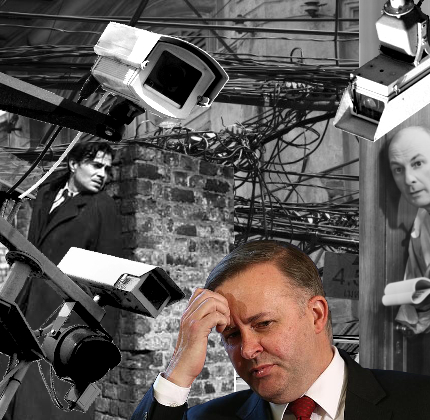Late call as Albo sees error
 Anthony Albanese has indicated Labor might have gone too far in supporting new laws to resict journalists, whistleblowers, and those who do not wholly agree with Australia’s national security actions.
Anthony Albanese has indicated Labor might have gone too far in supporting new laws to resict journalists, whistleblowers, and those who do not wholly agree with Australia’s national security actions.
Some commentators have indicated that Anthony Albanese has spoken far too late, raising questions days after his party keenly supported the passage of the laws.
The Labor Party has been avoiding any hint of conflict with the installation of new laws by the LNP Government, but it appears that Mr Albanese may have found something he disagrees with.
“When it comes to the so-called anti-terrorist laws, there has to be proper scrutiny of them,” he said in an interview with Sky News on the weekend.
“We can be fully supportive of our engagement in the Middle East and still say we don’t protect freedom by giving it up.
“I believe the media laws are draconian when we talk about potential penalties of five or 10 years jail for exposing what might be an error made by the security agencies,” Mr Albanese said.
The Shadow Minister for Infrastructure, Transport and Tourism said in times of heightened alarm, spy agencies will always look to extend their range.
“At a time like this the security agencies will take the opportunity to impose things that have been in their bottom drawer for a long period of time.
“I believe our agencies, including ASIO, do a great job for this nation… but it’s also the case in a democratic country like ours – we’re talking about fighting for freedom, it’s important to ensure freedom is protected and not given up.”
This sentiment was non-existent during legislative debate on the laws, during which only one Labor figure, West Australian backbench MP Melissa Parke, spoke against the changes.
Albanese says now that the laws have passed and certain forms of journalism are illegal, he has realised there may be some flaws.
“I’m concerned about the rights of journalists. I’m someone who has consistently supported the rights of media to report,” he told Sky News.
Earlier this year, before the new security legislation was tabled, shadow attorney-general Mark Dreyfus told reporters that Labor would not back the criminalisation of journalism.
“If Senator Brandis’s amendments would criminalise reporting by journalists who receive intelligence information, the government will need to make changes to remove that consequence,” Dreyfus said.
These changes did not occur.








 Print
Print